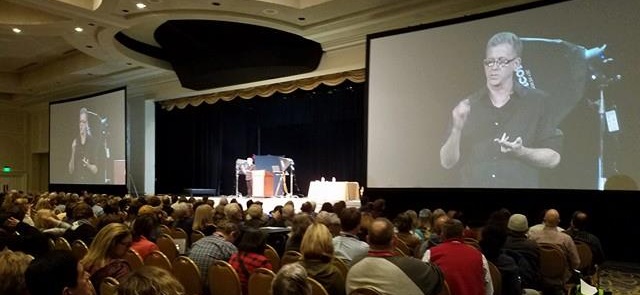This should be the simplest commandment to obey, but often ends up being the most difficult one of all..
Ideally you should create art because you are driven to do it. Because you are compelled to do it.
You shouldn’t worry so much about making a living at it. Follow your passion and create the images you are COMPELLED to create, and people will come to recognize and appreciate your genuineness and THEN the money will come.
But “Ideally” quite often butts heads with “realistically” in the very “real” world we find ourselves living in (of having to pay rent and bills).
So what usually happens is something like this:
You get the photography bug because you are inspired by some particular imagery or photographer..
You basically fall in love with it!
You start doing it as a hobby and are consumed by it - you do it every day and are driven to get better, to learn more.. You live, breathe and eat your art (even though you have a day job).
Eventually people start noticing how committed you are and tell you “you should be making a living at this”.
You agree with them and you start trying to charge people and get frustrated by the fact that no one wants to pay you for your work.
Then you start getting on online forums and searching for how to make a living with your camera.
Maybe you start listening to what “seasoned pros” tell you to do and accept their experience as wisdom.
Then perhaps you enter into a genre of photography that wasn’t really what you originally wanted to do, but you figure the goal is to make money with your camera - so you study hard start assisting, then eventually spend all your time and energy devoted to this money-making pursuit.
Eventually the money comes and with that comes all the headaches of running a full-time business.
But hey - you are indeed making a living with your camera!
You may end up very happy and artistically fulfilled AND with the gratifying feeling of knowing that you are making a living doing what you love.. or you may end up miserable and feeling like you lost your passion along the way.
Please note - it is VERY IMPORTANT for me to say here that I am not putting down any of these valid genres of photography that can all yield a very nice living for you if you succeed at them. Commercial work, Family Portraits, weddings, boudoir, architectural photography , corporate/actor head-shots etc. These are all varied, rich and diverse fields and there are plenty of extremely talented, passionate and financially successful photographers working within all of them.
The trick is, regardless of your chosen field, to stay passionate about photography - bring that passionate zeal you had as a newbie to your money-making pursuits. Continue to grow and to innovate and you will be rewarded in many ways - not just financially.
Above all things: follow your passion - let it drive you on you journey as an Artist….
Me, being “passionate” about teaching.. at Imaging USA 2018 in Nashville Tennessee
(photo by Alex VanZeelandt)


